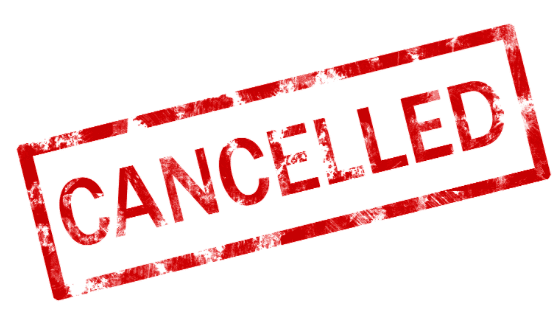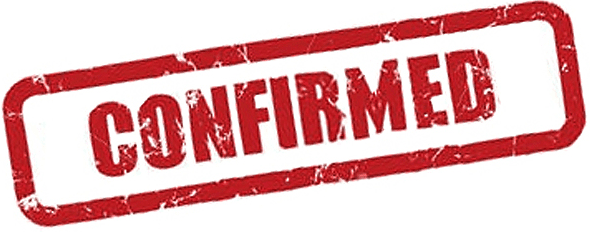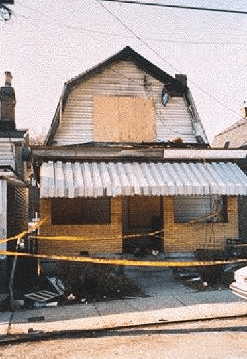 I had an amazing conversation with a firefighter recently about situational awareness following a program and I just had to share it with you.
I had an amazing conversation with a firefighter recently about situational awareness following a program and I just had to share it with you.
He asked how many of the 26 fire departments represented in the room had a process in their Mayday/rapid intervention procedures for canceling a Mayday. Hearing the answer…I was stunned!
In all my travels and in all my teaching, I’ve never considered the ramifications of what could happen if there were no process in place by which to confirm a rescue had been completed (of the right members) and when the Mayday should be cancelled. It was a brilliant question.
He shared with the class that he had posted the question on a national forum and found only a handful of departments that actually have a process to confirm a rescue is complete and the Mayday is cancelled. Absent of this process, how do we really know the firefighters are safe and the right crew has been rescued, and all the firefighters in danger have been rescued? Imagine how complicated things could become if there were multiple Maydays.
 I am reminded of the Bricelyn Street fire in Pittsburgh, Pennsylvania, and the valuable lessons that arose from the need to have good accountability during a Mayday operation.
I am reminded of the Bricelyn Street fire in Pittsburgh, Pennsylvania, and the valuable lessons that arose from the need to have good accountability during a Mayday operation.
Chief Gasaway’s Advice
 Develop a procedure and train firefighters how to account for everyone and include a process for how to ensure the right firefighters have been rescued. The Mayday procedure should include a process for how to cancel the Mayday once the incident has diminished or, in the worst of possible outcomes, the commander determines the progression of the fire has exceeded the capacity of firefighting teams to conduct interior rescue operations.
Develop a procedure and train firefighters how to account for everyone and include a process for how to ensure the right firefighters have been rescued. The Mayday procedure should include a process for how to cancel the Mayday once the incident has diminished or, in the worst of possible outcomes, the commander determines the progression of the fire has exceeded the capacity of firefighting teams to conduct interior rescue operations.
Action Items
 1. Does your department have both a Mayday and a Rapid Intervention Team (RIT) policy?
1. Does your department have both a Mayday and a Rapid Intervention Team (RIT) policy?
2. Do your Mayday and RIT programs include a process for a diminished Mayday?
3. Have you ever been involved in a Mayday operation? If so, share your experience of what went well and what could have been improved.
_____________________________________________________________
The mission of Situational Awareness Matters is simple: Help first responders see the bad things coming… in time to change the outcome.
Safety begins with SA!
_____________________________________________________________
Share your comments on this article in the “Leave a Reply” box below. If you want to send me incident pictures, videos or have an idea you’d like me to research and write about, contact me. I really enjoy getting feedback and supportive messages from fellow first responders. It gives me the energy to work harder for you.
Thanks,

Email: Support@RichGasaway.com
Phone: 612-548-4424
Facebook Fan Page: www.facebook.com/SAMatters
Twitter: @SAMatters
LinkedIn: Rich Gasaway
YouTube: SAMattersTV
iTunes: SAMatters Radio

Great point Chief. Like you, I had never thought about this before, and it really goes to show that the more eyes you get looking at an issue the more you will be able to harvest.
In terms of canceling the Mayday let me add this. When I read the tag line my first thought was that you were talking about the person who initiated the Mayday being able to cancel the transmission. I think all departments should have a comprehensive Mayday guideline/procedure. The first element is that all Maydays are no harm/no foul. If you feel like you are in trouble call the Mayday. A member will not be judged about this, mainly because the decision to initiate an emergency request is pretty subjective. The only who really knows the conditions at the time was the person who made the call. If we allow this to be judged by others then some members might not be willing to call a Mayday when it is needed.
Maydays should not be cancelled by the person who calls them. There is a good chance that one’s situational awareness was skewed and that lead to the Mayday. It is very unlikely that an individual in that situation will be able to regain their situational awareness to the point where they can make good decisions regarding this. Even if the member does regain their ability to self-extricate what would happen if they got into to trouble again. It happened once, it could happen again. A second Mayday would cause so much confusion it would be next to impossible to regain any true element of control. If you call a Mayday then we will extricate you from the hazardous environment and we will not be judgmental about the reasons behind the Mayday.
This still leaves the issues of how you would terminate a Mayday call. I think that the best way is to adopt a common term such as ‘The Mayday has been completed”, the criteria for making that determination, and a procedure to make that transmission. The criteria could be as simple as the involved member has been removed from the structure and that all resources deployed for the Mayday have a P.A.R. outside the building. Once these criteria have been then the transmission could be simi-cast on all frequencies used by operating forces.
I hope these thoughts might add something to the conversation and give departments some additional tools to help manage a Mayday.
Dennis,
Great observations. Thanks for sharing. I have many concerns about how mayday procedures are developed and how firefighters are trained to perform during a mayday. The potential for a good outcome is impacted from both of these issues. In my discussions with firefighters, I also firmly believe there is a significant degree of over confidence about the success a RIT will have if a mayday call is made. Here’s hoping the discussions continue. ~ Rich
I have been working on a presentation on Mayday and why we do not emphasize training and practical skills more than we do. I gave my first presentations at the Colorado Firefighter Academy in October. The research that I have done on Mayday calls I have yet to here an actual Mayday that was done according to protocol. My solution to this is more training with an emphasis on making calling the Mayday as second nature as putting on your PPE. As of now there are no standards on calling a Mayday and I have yet to find a state that requires a Mayday situation in their JPR skills.
It seems strange that we require a new recruit to pass a skill on answering the telephone but we do not require that they know the proper procedure to cal for help when they need it.
I am implementing a process that each morning personnel will do their regular gear checks, SCBA check, rig check, and a Mayday call with their crew. This is a muscle memory thing just like any other procedure that we do and we must be able to accomplish the task in the most stressful situation imaginable.
Randy, Thanks for sharing your feedback and observations. You’re right on target. Keep up the good work. You’re making a difference! Rich